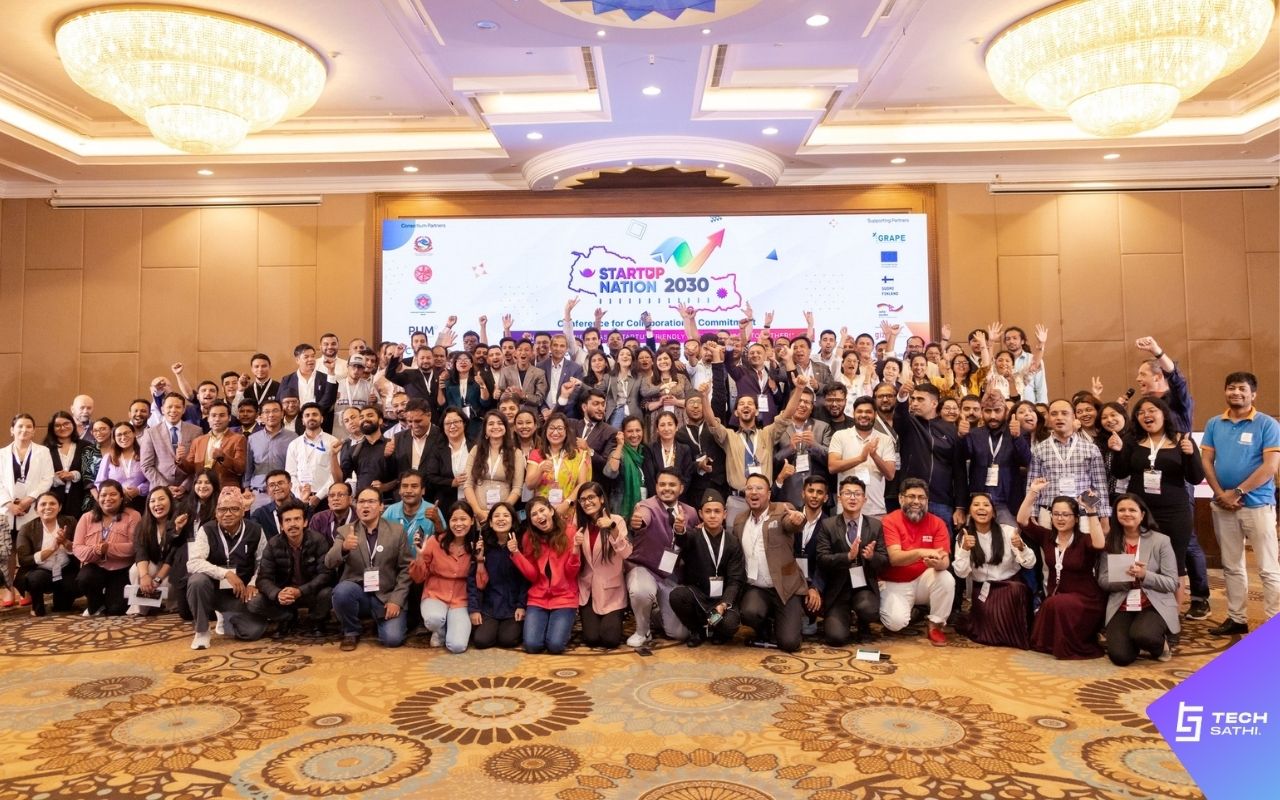Nepal is on a mission to become a Startup Nation. The country is gearing up to unleash its entrepreneurial potential with a vision of creating 10,000 new startups that generate 100,000 jobs by 2030. But how realistic is this goal? And what are the steps needed to make it happen?
To answer these questions, a landmark event was recently organized in Kathmandu: the Startup Nation 2030 Conference. The conference was organized as a collaborative effort between the Ministry of Industry, Commerce and Supplies (MoICS), the Federation of Nepalese Chambers of Commerce and Industry (FNCCI), the Nepal Entrepreneurs’ Hub (NE Hub), and the Nepal Innovation Lab. It was supported by PUM Netherlands, a non-profit organization that provides expert advice to entrepreneurs in developing countries.
The event brought together around 200 attendees, including government officials, academic institutions, industry organizations, and international experts. The participants discussed strategies for achieving the ambitious vision of establishing 10,000 new startups that create 100,000 jobs by 2030.
The event featured inspiring conversations and idea exchanges between startup ecosystem builders from around the region.
Speakers in the Startup Nation event shared lessons learned and best practices for creating startup hubs in emerging economies. They also addressed policy challenges and gaps hindering startup growth in Nepal.
Budding entrepreneurs from Nepal spoke about their journeys and pain points during informative founder talks. There were also ample networking opportunities for participants to connect and explore potential partnerships. It was interesting to see translation devices helping to make the contents accessible for both Nepali and English speakers.
It was especially noteworthy that multiple discussions addressed integrating climate change considerations into startup strategies. This shows rising awareness of startups’ role in sustainable development.
The conference also revealed the gaps and challenges that need to be addressed to realize the vision of 10,000 startups by 2030. Some of the key issues that emerged were:
- The need for clear and consistent policies that enable startups to operate smoothly and scale up
- The need for more access to capital from diverse sources, such as angel investors, venture capitalists, impact investors, and crowdfunding platforms
- The need for more talent development programs that equip entrepreneurs with relevant skills and knowledge
- The need for more startup support systems that provide mentorship, guidance, networking, and exposure
As Nepal’s leading technology portal, TechSathi was excited to see stakeholders aligning around this startup growth agenda. We have long advocated for expanding Nepal’s startup ecosystem, organizing events and workshops to assist founders and promote new ventures. However, we believe it will require focused policies, investments, and support systems to turn the vision into reality.
However, we believe that achieving the 10,000 startups goal will require more than just advocacy and awareness. It will require concrete actions and interventions from all parties involved. It will require a holistic approach that addresses all aspects of the startup lifecycle.
The 10,000 startups goal is ambitious. Nepal has potential to become a startup nation. But it will take more than just potential to become a Startup Nation. It will require the government and ecosystem players to collaborate closely with the startup community. It will require specific strategies across regulatory policy, capital access, talent development, and startup support systems. Participants clearly recognized the need to cultivate patient capital and alternative funding sources beyond just loans. Founders also cannot rely solely on personal networks for fundraising. Mechanisms are needed to connect startups to angel investors, venture capitalists, and impact investors globally. With a robust digital infrastructure, Nepal possesses significant advantages that could attract more foreign investor interest.
Also: Code for Change to host Codefest 2023 – a National Level HackathonWe at TechSathi are committed to play an active role in making this vision of turning Nepal into a startup nation a reality. But it will take a holistic approach backed by concrete actions to get there. The conference has sparked the momentum – now we must build on it.
What do you think about Nepal’s startup vision? Will it be possible to create 10,000 new startups in Nepal by 2030? Please share your thoughts.



